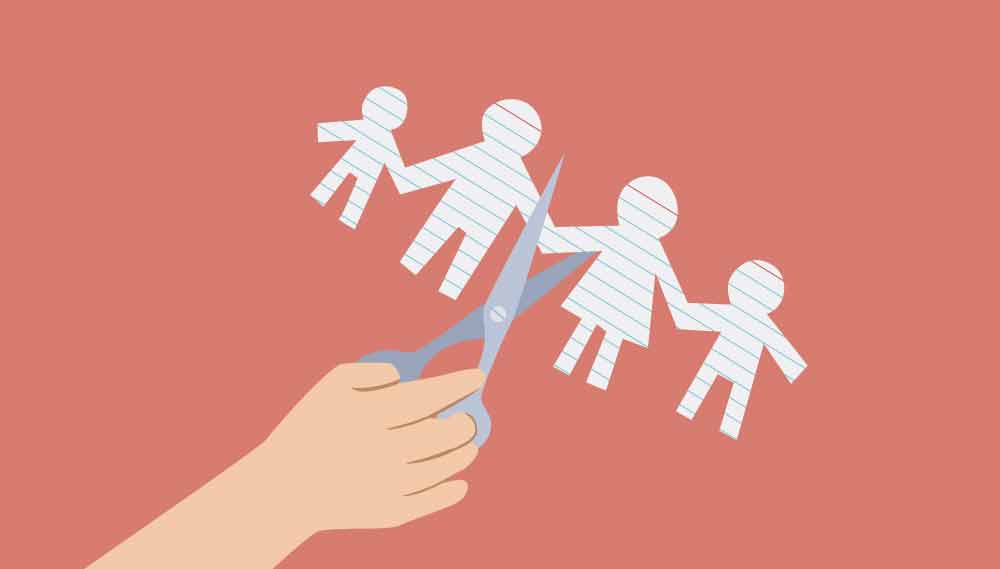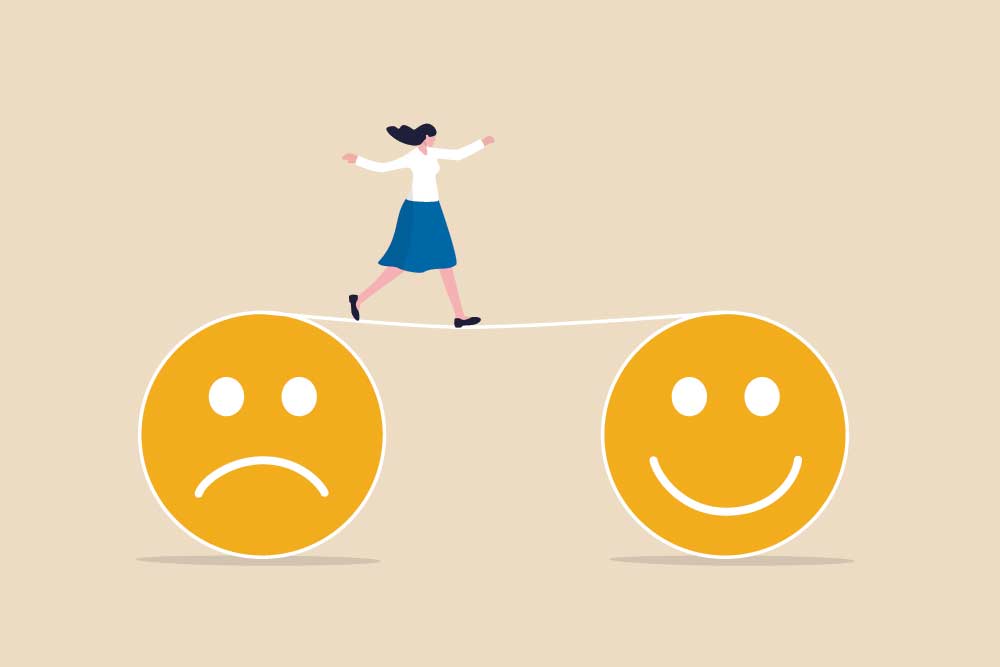We are always taught that having a family is fundamental to human experience, and that it’s incomprehensible to imagine life without it. The world paints a pretty picture when it comes to the definition of family. We are wired to believe that family means no harm, and your parents are meant to be selfless beings—unpacking what both these things, especially the latter, imply is not something we’re taught on the other hand. However, some people belong to families where they face neglect, mistreatment, mental abuse, and in some cases physical abuse. Chances are we all know someone who hasn’t talked to their father in years; or the middle child who out of all the siblings doesn’t share a great relationship with their parents; or maybe you find yourself in a similar situation.
The wound somehow snowballs, into becoming a giant avalanche ready to destruct anything in its path. In efforts to cope with such issues, most feel that distancing themselves is their best option.
Family estrangement can be agonising. When someone who is biologically wired to be your constant support voluntarily walks away, you are left feeling lost, you miss them, feel confused, agitated, angry, humiliated, discouraged, and disappointed. In a way, the grief of family estrangement is more painful than the grief over a loved one who has died.
Living With The Pain

Events and situations that give rise to extreme negative emotions, difficulty with self-regulation, and increased emotional and physiological responses lead to an individual left feeling alienated and alone. Post my parents separation, I saw my father distance himself from me: he wasn’t at important events, wasn’t available to take me to school or for college admissions, and eventually we did not speak for years and that became our normal. The estrangement process was painful because it involved the loss of both the parent-child relationship and a shared family identity. The repercussion was me feeling angry, embarrassed, bitter, and pessimistic but at the same time relieved that I no longer have to pretend to care, and that estrangement was the best recourse available.
Is Estrangement A Welcome Move?

There is no direct way to bring about an end to a parent-child relationship, as these bonds are assumed to be unbreakable and non-voluntary with its concern about how others will react to this decision. Estrangement is fundamentally fuelled by uncertainty – whether your family actually loves you or whether they think you are good enough or whether you are the cause of all problems. Or simply because you have come to believe (through any number of real instances that have hurt you repeatedly) that the family member in question is not capable of love. You often find yourself left in a situation that has vagueness, complexity, and unpredictability.
Is That Relationship Really Dead To You?

Psychologically, family ties and relationships can never be put to rest. I remember my therapist telling me that estrangement is more like shoving all your mess under the bed and not really tidying it up. After all that built-up anger, disappointment and sometimes hate, your brain becomes hotwired for similar signs in all your other relationships. Personally it took a lot of energy and presence of mind for me to separate estrangement from my dad from the other relationships I have. Your tolerance of people around you goes down, you become suspicious of people being kind to you or showing some form of care, making your pool of good relationships smaller and unsafe for you.
Accepting What You Can’t Control And Making Peace With It

For me estrangement with my father meant absolutely no ties with the paternal side of my family, including my grandparents. When the pandemic hit in 2020, my husband lost his grandmother, which made me realise that I haven’t spoken to mine since I was 14. And that made me wonder if all this hate and negativity is worth it.
When there is little effort from the person who you’ve estranged yourself from it is difficult to move on and accept the situation. But what is more difficult is rising above it and making peace with it for yourself and your happiness. Something that therapy taught me is that forgiveness towards someone is something that you achieve internally and most of the time it does not necessarily require the person to be present or even say anything. While it may take some time, if you're open to mentally forgiving someone, you can move past in a way that brings you internal peace.
What Should You Do If They Reach Out?

Once a year like clockwork my dad would call just on my birthday, never before or after, and post multiple failed attempts on every birthday, I finally gave in and answered my dad’s call in 2020. I asked myself – “What do I want more—for this person to suffer? Conform to my standards? Or for this person to be in my life?” I was finally willing to listen, even when I knew I couldn’t completely change my worldview overnight. Talking about your purpose for moving forward is important – for me it initially was to connect with my grandma again, but eventually I was happier with the sporadic phone calls from dad as well.
Mending Your Broken Heart

The past two years have been pleasant. I no longer cringe at a father-daughter movies or feel like someone has punched me when I see an emotional father at a wedding. I may not be sending my father gifts and ‘I love you’ messages on Father’s Day, but I can stand to take his calls and have a rare laugh with him – and that is progress. Always go back to your purpose, see if the wounds can heal even if it takes time. Whenever you are ready, be the bigger person say you’d like to hear back from them. Don’t fight your emotions and feelings - give them a call, or send them a text if you want to. Your goal should be open communication, stopping the impasse, and beginning a process of reconciliation.